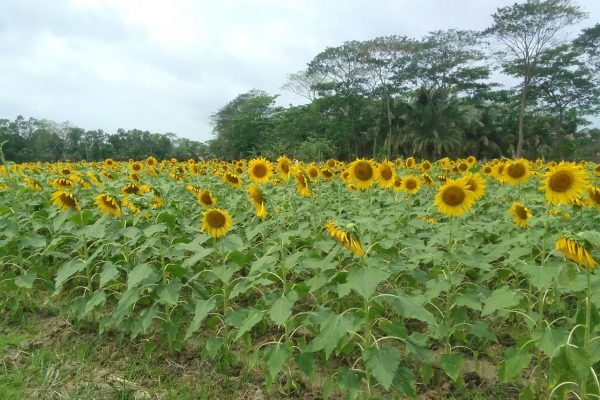Reading Time: 3 minutes
BRAC recently partnered with Clowns Without Borders UK, a charity that aims to share laughter with children in crisis. A team from the charity visited Cox’s Bazar to spread a little cheer among the Rohingya children. The playful performances recognised that despite the trauma or difficulties they may have witnessed, children have the right to play, have fun and heal.
It is 10 in the morning in Balukhali 1 camp, Cox’s Bazar. The planting season has begun and many of the paddy fields are already filled with water. In one of the still-dry fields, a crowd begins to gather. Children descend from the surrounding hills and houses of the camp, some in lines, some in crowds, and many more come skipping hand in hand.
The clowns are in town.
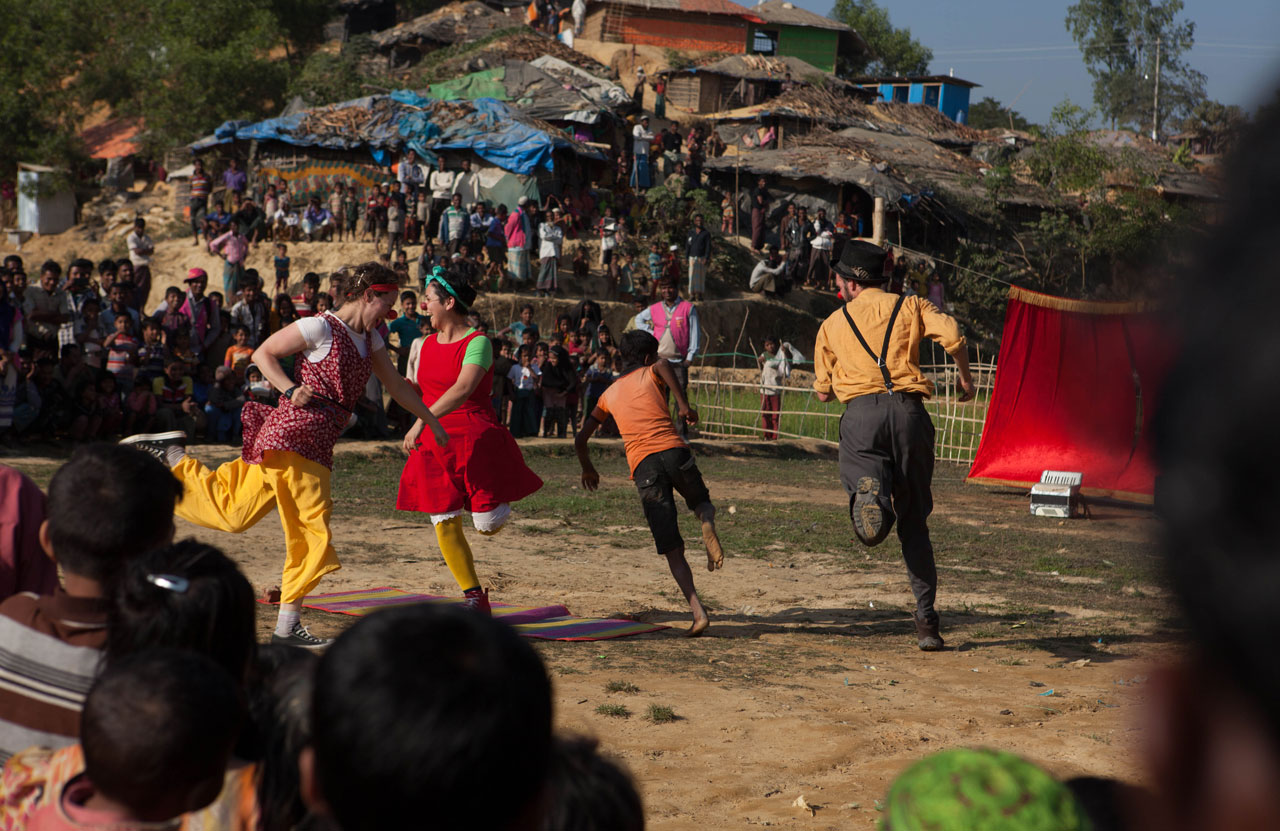
Photo: CWBUK/Edward Morgan
The crowd is already a thousand strong as they form a huge circle around three playful figures in the centre. Children sit at the front, adults stand at the back. Latecomers seek out a way to get through and find a seat. You can sense the curiosity in the air. “What’s going on?” “Who are these people?” “What are they doing?” “Why are their noses red?”
One of the clowns, Parata, starts up her imaginary motorbike and invites another, Rasheed, to join her on the back. They race around the stage. Brroom, brroom, brroom! Then they invite a child, one more, then one more again, to mount this rapidly expanding vehicle of laughter and nonsense.
The show has not even begun. Or perhaps it has.
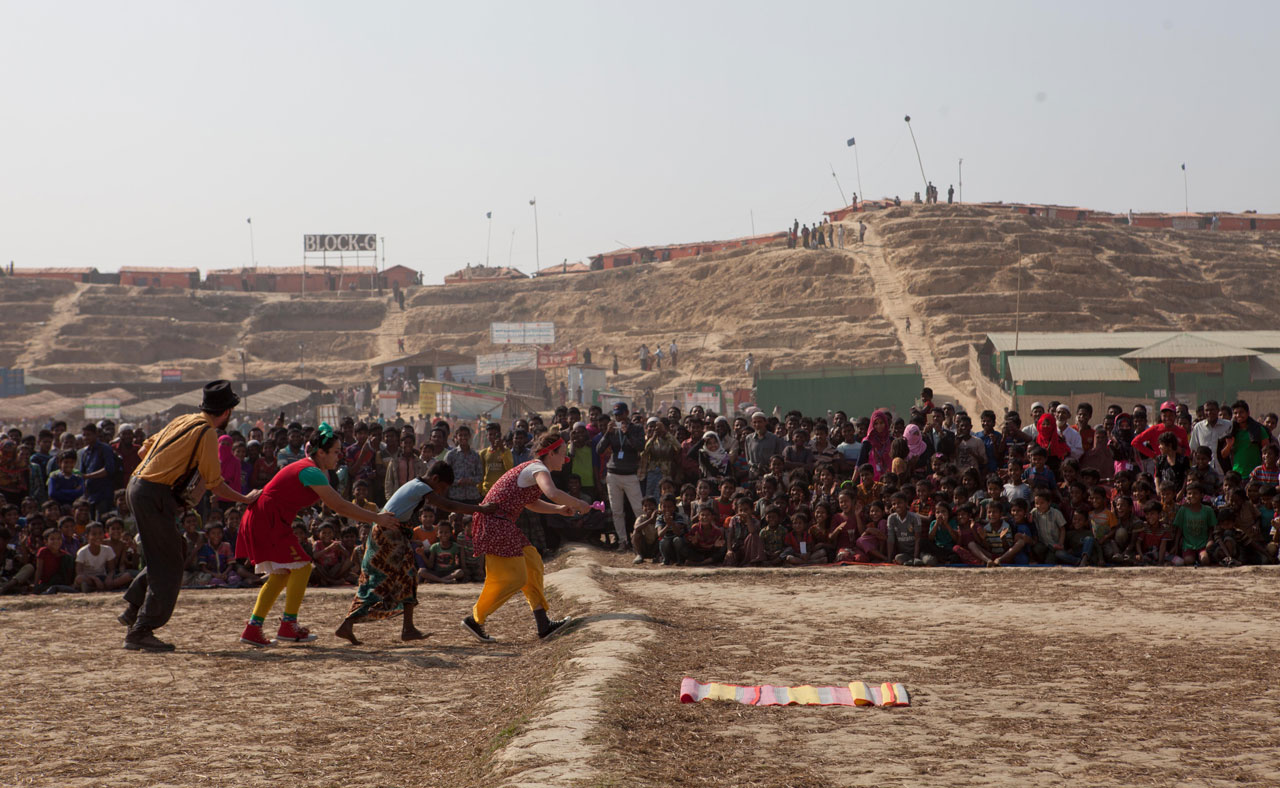
Photo: CWBUK/Edward Morgan
I climb one of the hills to find a good vantage point and there I find a family sitting together in their home, watching from afar. Like the spectators in the field below, they observe the clowns with a mixture of intrigue and amusement. They question each other, they chuckle, they watch.
My name is Edward Morgan, and I am a photographer for Clowns Without Borders UK. One of my jobs is to capture moments like these, hidden away from the epicentre of the action. Small, intimate, ephemeral snapshots of shared joy.
The clowns create the canvas but the true authors of these moments are the audience members themselves. As I stand behind the crowd I see young boys with their grandmothers, little girls on their fathers’ shoulders, brothers and best friends holding hands, sometimes laughing, sometimes playing.
Coco, the third clown, falls asleep and no one can wake her. “Coco!” we cry in unison. There are moments of the show when the entire crowd roars with laughter – someone is stealing Rasheed’s water. And there are times when only a few private giggles can be heard. Then there are times of complete silence, when the audience stares in wonder at regurgitating ping pong balls or juggling hats.
When one thinks of clowns, one does generally think of laughter. And while this is the essence of all 15 Clowns Without Borders chapters – to bring joy and laughter to children and adults in crisis zones – the beauty and the power of their work is often found in the magic of bringing people together to share – to share laughter and games, to share a moment.
Clowns without Borders work in a wide range of crisis situations and conflict zones, such as South Sudan, disaster-hit regions such as Haiti or the Philippines, areas of extreme poverty such as South Africa or India, and refugee camps in Greece, Jordan, or Bangladesh, where we find ourselves today.
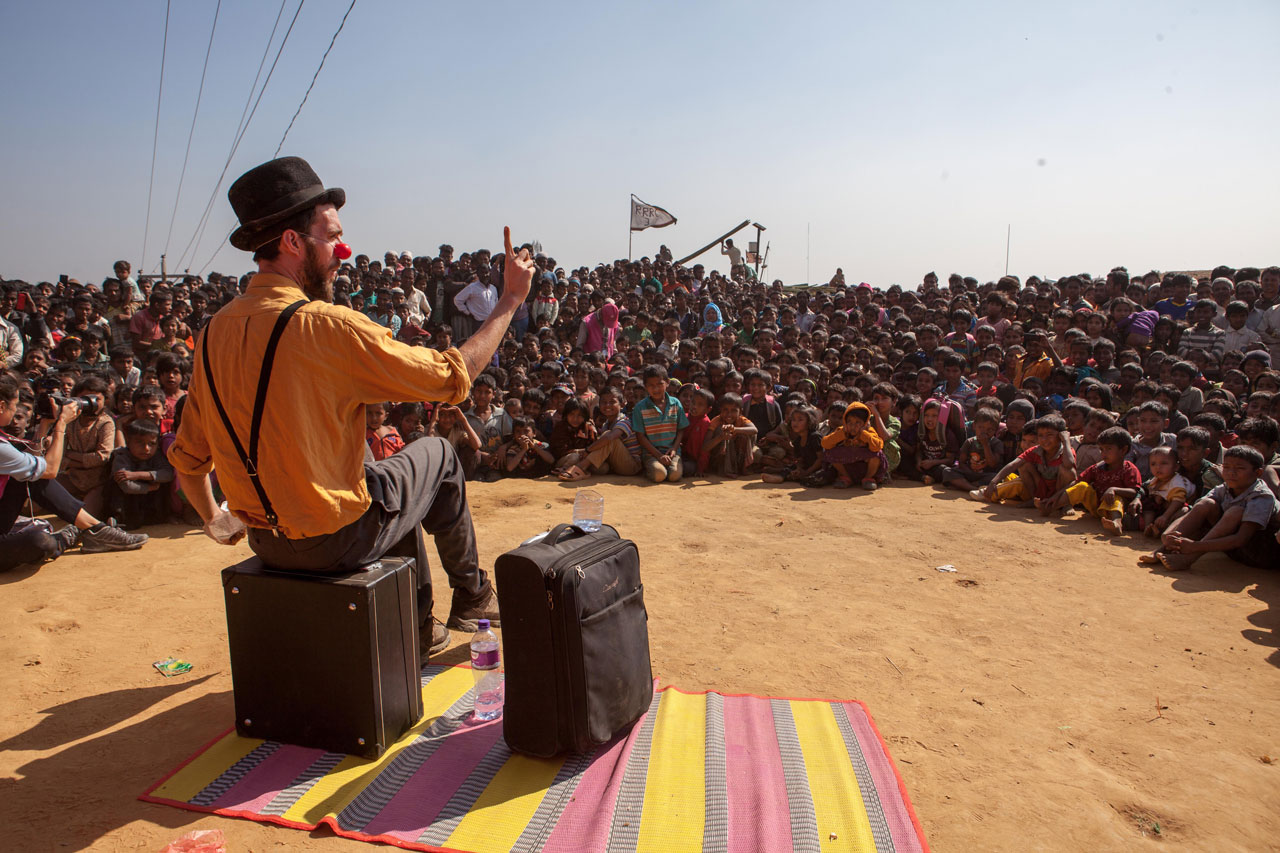
Photo: CWBUK/Edward Morgan
In such serious, stressful and fearful situations, the priorities of food, health and safety take up all one’s time and energy. So simply stopping to share a moment with family and friends is a precious, precious thing. For a child, seeing your father laugh can be as powerful as squealing with delight in a bundle of friends. We try to bring both.
As one of our clowns says, “Play and a smile – the two greatest tools of pure human connection. Something universally understood and not bound by the shackles of language or time. Something free from worry and fear.”
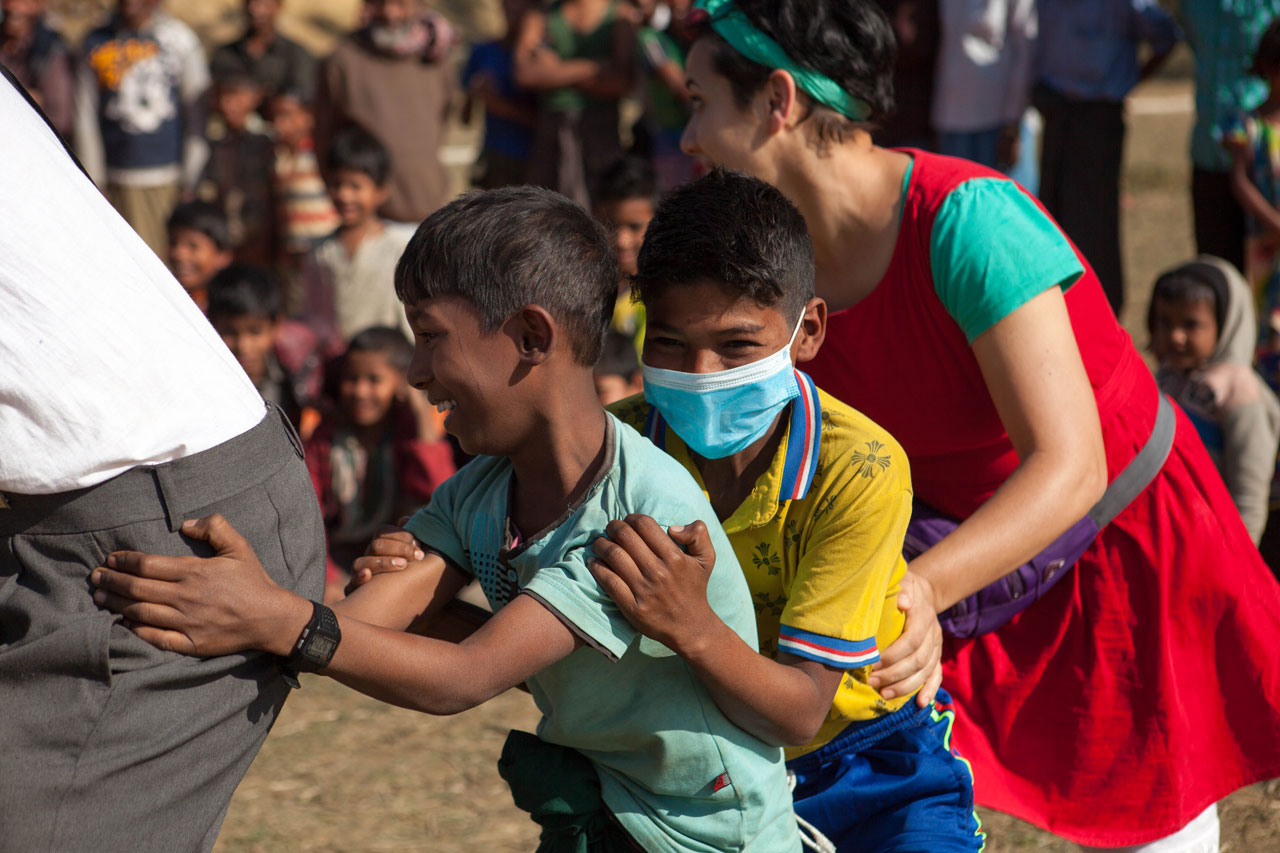
Photo: CWBUK/Edward Morgan
The psychosocial support of children and adults in extremely difficult situations is serious business. Crisis response experts increasingly acknowledge the importance of mental health in the recovery of basic human wellbeing. By spreading laughter, we can enable people to hold their own lights up to the darkness, for if darkness is fear, laughter is light.
Perhaps that is why we call it ‘light relief’.
Edward Morgan is a photographer and tour leader for Clowns Without Borders UK.




